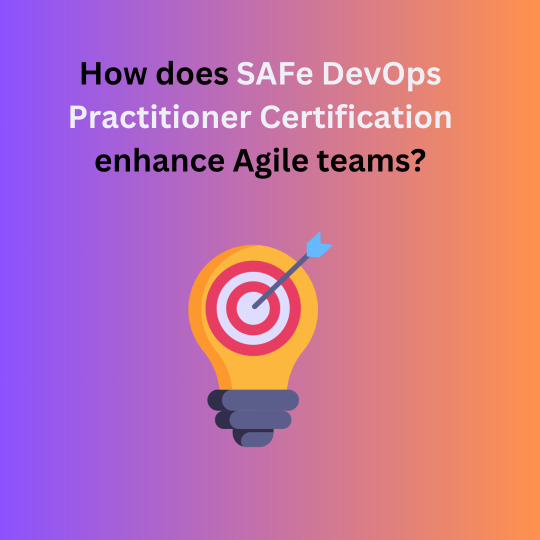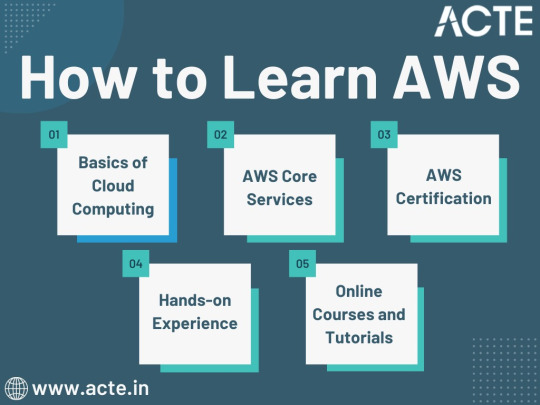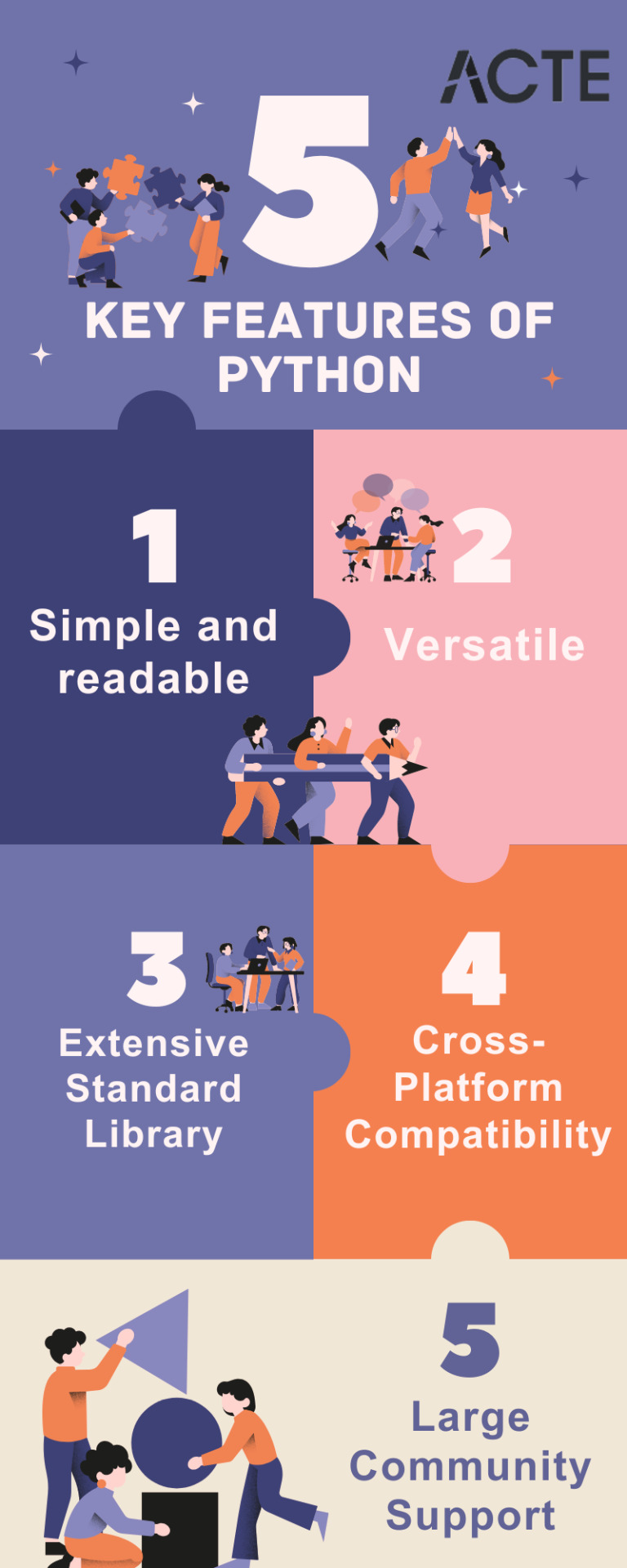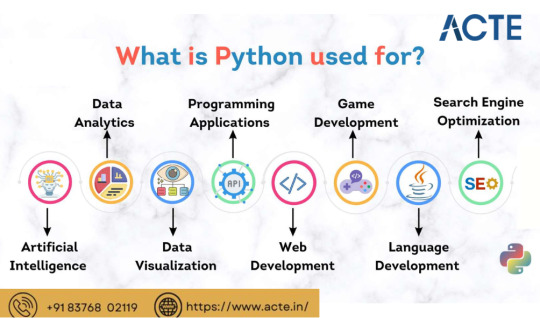#DevOps Practitioners
Explore tagged Tumblr posts
Text
How does SAFe DevOps Practitioner Certification enhance Agile teams?
Introduction :-
The SAFe DevOps Practitioner (SDP) certification is designed to empower professionals with the skills and knowledge necessary to implement DevOps practices within the Scaled Agile Framework (SAFe). As organizations increasingly adopt Agile methodologies to enhance their software delivery processes, the role of DevOps becomes critical. This blog explores how obtaining the SAFe DevOps Practitioner certification can significantly enhance Agile teams and improve their overall performance.
Fostering Collaboration Between Development and Operations
One of the primary benefits of the SAFe DevOps Practitioner certification is its focus on improving collaboration between development and operations teams. Traditionally, these two groups have operated in silos, often leading to miscommunication and delays in delivering value. The SDP certification emphasizes a shared DevOps mindset, encouraging team members to work together throughout the entire software development lifecycle. By breaking down these barriers, Agile teams can streamline their workflows, resulting in faster delivery times and higher-quality products.

Implementing Continuous Delivery Pipelines
The certification equips practitioners with the knowledge to develop and automate a Continuous Delivery Pipeline. This pipeline is essential for enabling Agile teams to deliver value incrementally and consistently. Participants learn how to map their current delivery processes, identify bottlenecks, and implement continuous integration, continuous testing, and continuous deployment practices. By mastering these skills, Agile teams can reduce lead times, minimize errors, and increase the frequency of deployments, ultimately enhancing their responsiveness to customer needs.
Encouraging a Culture of Continuous Improvement
A key aspect of the SAFe DevOps Practitioner certification is its emphasis on fostering a culture of continuous improvement within Agile teams. Certified practitioners are trained to facilitate regular retrospectives and feedback loops, allowing teams to reflect on their processes and identify areas for enhancement. This culture encourages experimentation and innovation, enabling teams to adapt quickly to changing requirements and continuously optimize their workflows. As a result, Agile teams become more resilient and better equipped to handle challenges.
Enhancing Quality Assurance Practices
Quality assurance is critical in any software development process. The SAFe DevOps Practitioner certification provides participants with tools and techniques to integrate quality into every stage of the development lifecycle. By implementing practices such as continuous testing and automated quality checks, Agile teams can identify defects early in the process, reducing the cost of fixing issues later on. This proactive approach to quality assurance not only improves product quality but also enhances customer satisfaction.
Improving Risk Management
The SAFe DevOps Practitioner certification emphasizes the importance of risk management within Agile environments. Participants learn how to identify potential risks early in the development process and implement strategies to mitigate them effectively. By fostering a culture of shared responsibility for risk management among team members, Agile teams can reduce the likelihood of release failures and improve their overall reliability. This proactive approach enables organizations to deliver solutions with greater confidence.
Aligning Work with Business Objectives
Certified SAFe DevOps Practitioners are trained to align their work with broader business objectives. This alignment ensures that Agile teams are not only focused on delivering features but also on delivering business value. By understanding how their work contributes to organizational goals, team members are more motivated and engaged in their tasks. This alignment fosters a sense of purpose within teams, leading to improved performance and better outcomes for the organization.
Conclusion
The SAFe DevOps Practitioner certification offers numerous benefits that significantly enhance Agile teams' capabilities and performance. From fostering collaboration between development and operations to implementing continuous delivery pipelines and promoting a culture of continuous improvement, this certification equips professionals with essential skills for success in today’s fast-paced software development landscape.
As organizations continue to embrace Agile methodologies, investing in SAFe DevOps Practitioner certification becomes increasingly valuable for individuals looking to advance their careers while contributing meaningfully to their teams' success. By enhancing collaboration, improving quality assurance practices, managing risks effectively, and aligning work with business objectives, certified practitioners play a crucial role in driving successful Agile transformations within their organizations.
#Safedevopscertification#Safedevopscourse#safedevopstraining#Safe devops#certified safe 5 devops practitioner
0 notes
Text
Why Is DevOps Practitioner on Cloud the Next Big Thing in Tech Careers
Dive into a transformative journey in the ever-evolving tech landscape with the next big thing in careers: DevOps Practitioner on Cloud. 🌐 Elevate your skills, streamline workflows, and become the architect of seamless digital innovation. Embrace the synergy of DevOps principles and Cloud technologies to shape the future of tech. 🚀 Unleash the power of continuous integration, delivery, and deployment on the Cloud frontier. As industries embrace digital transformation, position yourself at the forefront of change, and carve out a rewarding career. Your key to success awaits in mastering the art of DevOps on the Cloud – where innovation meets opportunity.

#DevOps Practitioner on Cloud#Cloud Computing#DevOps Practitioner#DevOps Practitioner Course & Training#Learning transformation services#top digital transformation services in india#learning transfomation#digital transformation#thedatatechlabs
0 notes
Text

It is a dynamic headline designed to inspire IT professionals to take their careers to the next level with the DevOps Practitioner Certification. This certification is not just a credential; it's a significant step in mastering the multifaceted world of DevOps. As a DevOps Practitioner, individuals gain comprehensive knowledge and practical skills in automation, coding, scripting, collaboration, and communication within the IT operational and development environment.
#devops practitioner#devops practitioner certification#certified devops practitioner#devops certification#devops certificate#devops engineer certification
0 notes
Text
#CDP#certified devops practitioner#CDP certification#devops practitioner best practices#devops practitioner certification#devops practitioner
0 notes
Text
How to Advance Your Career with AWS Certifications
In the fast-paced world of cloud computing, Amazon Web Services (AWS) has established itself as a leader in providing scalable, reliable, and cost-effective cloud solutions. As organizations increasingly migrate their workloads to the cloud, the demand for skilled AWS professionals has surged. If you're looking to advance your career in the IT industry, AWS certifications can be your ticket to success. We'll explore how AWS certifications can propel your career forward and provide a step-by-step guide to achieving them.
The Power of AWS Certifications
AWS certifications are widely recognized in the IT industry and are considered a valuable asset for both newcomers and seasoned professionals. Here are some key reasons why AWS certifications can supercharge your career:
1. Industry Recognition
AWS is a trusted name in cloud computing, and their certifications are well-respected by employers worldwide. Holding an AWS certification demonstrates your expertise and commitment to staying current in a rapidly evolving field.
2. Career Advancement
AWS certifications can open doors to new job opportunities and promotions. Many organizations prefer to hire certified professionals because they are seen as more capable and knowledgeable in AWS technologies.
3. Increased Earning Potential
Certified AWS professionals often command higher salaries than their non-certified counterparts. According to a survey by Global Knowledge, AWS-certified individuals earn an average salary that is significantly above the industry average.
4. Skill Validation
Obtaining an AWS certification validates your skills and knowledge in specific AWS services and technologies. It serves as concrete evidence of your expertise in the eyes of potential employers.
Choosing the Right AWS Certification
AWS offers a wide range of certifications, catering to various roles and skill levels. Before you embark on your certification journey, it's essential to choose the one that aligns with your career goals and current experience. Here are a few popular AWS certifications:
1. AWS Certified Cloud Practitioner
Designed for individuals with little or no cloud experience, this entry-level certification provides a broad overview of AWS services, cloud concepts, and basic architectural best practices.
2. AWS Certified Solutions Architect
This certification is ideal for those interested in designing distributed systems on AWS. It covers topics like architectural best practices, security, and scalability.
3. AWS Certified SysOps Administrator
Focused on system operations and management, this certification is suitable for individuals responsible for deploying, managing, and operating systems on AWS.
4. AWS Certified DevOps Engineer
For those interested in automation, this certification validates skills related to continuous delivery, automation, and managing infrastructure as code.
5. AWS Certified Security - Specialty
For security professionals, this certification focuses on securing AWS workloads and implementing advanced security measures.
Steps to AWS Certification Success
Now that you've decided on the right certification, here are the steps to help you achieve your goal:
1. Set Clear Goals
Define your career goals and how AWS certifications align with them. Having a clear vision will keep you motivated throughout your certification journey.
2. Choose Relevant Training Resources
AWS provides extensive documentation and training resources, including online courses, practice exams, and official study guides. Consider enrolling in AWS Certified training courses, which are designed to help you prepare for the exams.
3. Hands-On Experience
Practice is key to mastering AWS. Create your AWS account and experiment with the services covered in your chosen certification. Hands-on experience will deepen your understanding and boost your confidence.
4. Study and Prepare
Devote time to study and review the certification's objectives. Use study guides, practice exams, and community forums to reinforce your knowledge.
5. Take Practice Exams
Practice exams are invaluable for gauging your readiness. They help you identify areas where you need to improve and build your test-taking skills.
6. Schedule and Take the Exam
Once you feel confident in your knowledge, schedule your exam. AWS offers both online and in-person testing options to accommodate your preferences.
7. Stay Informed
AWS constantly updates its services and certifications. Stay informed about changes and consider pursuing additional certifications to continue growing in your career.
Conclusion
AWS certifications have become a gold standard in the IT industry, and they offer an excellent opportunity to advance your career. Whether you're starting from scratch or looking to level up your skills, there's a certification tailored to your needs. Remember that certification is a journey, not a destination. Keep learning, stay updated, and embrace the dynamic world of AWS to unlock the full potential of your cloud computing career. With dedication and the right certifications, you can be on your way to a brighter and more rewarding future in the world of cloud computing.
#AWS Certifications#AWS Training#Cloud Computing Certifications#Amazon Web Services#AWS Solutions Architect#AWS Certified Developer#AWS Certified SysOps Administrator#AWS Certified Cloud Practitioner#AWS Certified DevOps Engineer#AWS Specialty Certifications#Cloud Security Certifications#Cloud Networking Certifications
0 notes
Text
Navigating the DevOps Landscape: Opportunities and Roles
DevOps has become a game-changer in the quick-moving world of technology. This dynamic process, whose name is a combination of "Development" and "Operations," is revolutionising the way software is created, tested, and deployed. DevOps is a cultural shift that encourages cooperation, automation, and integration between development and IT operations teams, not merely a set of practises. The outcome? greater software delivery speed, dependability, and effectiveness.

In this comprehensive guide, we'll delve into the essence of DevOps, explore the key technologies that underpin its success, and uncover the vast array of job opportunities it offers. Whether you're an aspiring IT professional looking to enter the world of DevOps or an experienced practitioner seeking to enhance your skills, this blog will serve as your roadmap to mastering DevOps. So, let's embark on this enlightening journey into the realm of DevOps.
Key Technologies for DevOps:
Version Control Systems: DevOps teams rely heavily on robust version control systems such as Git and SVN. These systems are instrumental in managing and tracking changes in code and configurations, promoting collaboration and ensuring the integrity of the software development process.
Continuous Integration/Continuous Deployment (CI/CD): The heart of DevOps, CI/CD tools like Jenkins, Travis CI, and CircleCI drive the automation of critical processes. They orchestrate the building, testing, and deployment of code changes, enabling rapid, reliable, and consistent software releases.
Configuration Management: Tools like Ansible, Puppet, and Chef are the architects of automation in the DevOps landscape. They facilitate the automated provisioning and management of infrastructure and application configurations, ensuring consistency and efficiency.
Containerization: Docker and Kubernetes, the cornerstones of containerization, are pivotal in the DevOps toolkit. They empower the creation, deployment, and management of containers that encapsulate applications and their dependencies, simplifying deployment and scaling.
Orchestration: Docker Swarm and Amazon ECS take center stage in orchestrating and managing containerized applications at scale. They provide the control and coordination required to maintain the efficiency and reliability of containerized systems.
Monitoring and Logging: The observability of applications and systems is essential in the DevOps workflow. Monitoring and logging tools like the ELK Stack (Elasticsearch, Logstash, Kibana) and Prometheus are the eyes and ears of DevOps professionals, tracking performance, identifying issues, and optimizing system behavior.
Cloud Computing Platforms: AWS, Azure, and Google Cloud are the foundational pillars of cloud infrastructure in DevOps. They offer the infrastructure and services essential for creating and scaling cloud-based applications, facilitating the agility and flexibility required in modern software development.
Scripting and Coding: Proficiency in scripting languages such as Shell, Python, Ruby, and coding skills are invaluable assets for DevOps professionals. They empower the creation of automation scripts and tools, enabling customization and extensibility in the DevOps pipeline.
Collaboration and Communication Tools: Collaboration tools like Slack and Microsoft Teams enhance the communication and coordination among DevOps team members. They foster efficient collaboration and facilitate the exchange of ideas and information.
Infrastructure as Code (IaC): The concept of Infrastructure as Code, represented by tools like Terraform and AWS CloudFormation, is a pivotal practice in DevOps. It allows the definition and management of infrastructure using code, ensuring consistency and reproducibility, and enabling the rapid provisioning of resources.

Job Opportunities in DevOps:
DevOps Engineer: DevOps engineers are the architects of continuous integration and continuous deployment (CI/CD) pipelines. They meticulously design and maintain these pipelines to automate the deployment process, ensuring the rapid, reliable, and consistent release of software. Their responsibilities extend to optimizing the system's reliability, making them the backbone of seamless software delivery.
Release Manager: Release managers play a pivotal role in orchestrating the software release process. They carefully plan and schedule software releases, coordinating activities between development and IT teams. Their keen oversight ensures the smooth transition of software from development to production, enabling timely and successful releases.
Automation Architect: Automation architects are the visionaries behind the design and development of automation frameworks. These frameworks streamline deployment and monitoring processes, leveraging automation to enhance efficiency and reliability. They are the engineers of innovation, transforming manual tasks into automated wonders.
Cloud Engineer: Cloud engineers are the custodians of cloud infrastructure. They adeptly manage cloud resources, optimizing their performance and ensuring scalability. Their expertise lies in harnessing the power of cloud platforms like AWS, Azure, or Google Cloud to provide robust, flexible, and cost-effective solutions.
Site Reliability Engineer (SRE): SREs are the sentinels of system reliability. They focus on maintaining the system's resilience through efficient practices, continuous monitoring, and rapid incident response. Their vigilance ensures that applications and systems remain stable and performant, even in the face of challenges.
Security Engineer: Security engineers are the guardians of the DevOps pipeline. They integrate security measures seamlessly into the software development process, safeguarding it from potential threats and vulnerabilities. Their role is crucial in an era where security is paramount, ensuring that DevOps practices are fortified against breaches.
As DevOps continues to redefine the landscape of software development and deployment, gaining expertise in its core principles and technologies is a strategic career move. ACTE Technologies offers comprehensive DevOps training programs, led by industry experts who provide invaluable insights, real-world examples, and hands-on guidance. ACTE Technologies's DevOps training covers a wide range of essential concepts, practical exercises, and real-world applications. With a strong focus on certification preparation, ACTE Technologies ensures that you're well-prepared to excel in the world of DevOps. With their guidance, you can gain mastery over DevOps practices, enhance your skill set, and propel your career to new heights.
11 notes
·
View notes
Text
Journey to AWS Proficiency: Unveiling Core Services and Certification Paths
Amazon Web Services, often referred to as AWS, stands at the forefront of cloud technology and has revolutionized the way businesses and individuals leverage the power of the cloud. This blog serves as your comprehensive guide to understanding AWS, exploring its core services, and learning how to master this dynamic platform. From the fundamentals of cloud computing to the hands-on experience of AWS services, we'll cover it all. Additionally, we'll discuss the role of education and training, specifically highlighting the value of ACTE Technologies in nurturing your AWS skills, concluding with a mention of their AWS courses.

The Journey to AWS Proficiency:
1. Basics of Cloud Computing:
Getting Started: Before diving into AWS, it's crucial to understand the fundamentals of cloud computing. Begin by exploring the three primary service models: Infrastructure as a Service (IaaS), Platform as a Service (PaaS), and Software as a Service (SaaS). Gain a clear understanding of what cloud computing is and how it's transforming the IT landscape.
Key Concepts: Delve into the key concepts and advantages of cloud computing, such as scalability, flexibility, cost-effectiveness, and disaster recovery. Simultaneously, explore the potential challenges and drawbacks to get a comprehensive view of cloud technology.
2. AWS Core Services:
Elastic Compute Cloud (EC2): Start your AWS journey with Amazon EC2, which provides resizable compute capacity in the cloud. Learn how to create virtual servers, known as instances, and configure them to your specifications. Gain an understanding of the different instance types and how to deploy applications on EC2.
Simple Storage Service (S3): Explore Amazon S3, a secure and scalable storage service. Discover how to create buckets to store data and objects, configure permissions, and access data using a web interface or APIs.
Relational Database Service (RDS): Understand the importance of databases in cloud applications. Amazon RDS simplifies database management and maintenance. Learn how to set up, manage, and optimize RDS instances for your applications. Dive into database engines like MySQL, PostgreSQL, and more.
3. AWS Certification:
Certification Paths: AWS offers a range of certifications for cloud professionals, from foundational to professional levels. Consider enrolling in certification courses to validate your knowledge and expertise in AWS. AWS Certified Cloud Practitioner, AWS Certified Solutions Architect, and AWS Certified DevOps Engineer are some of the popular certifications to pursue.
Preparation: To prepare for AWS certifications, explore recommended study materials, practice exams, and official AWS training. ACTE Technologies, a reputable training institution, offers AWS certification training programs that can boost your confidence and readiness for the exams.
4. Hands-on Experience:
AWS Free Tier: Register for an AWS account and take advantage of the AWS Free Tier, which offers limited free access to various AWS services for 12 months. Practice creating instances, setting up S3 buckets, and exploring other services within the free tier. This hands-on experience is invaluable in gaining practical skills.
5. Online Courses and Tutorials:
Learning Platforms: Explore online learning platforms like Coursera, edX, Udemy, and LinkedIn Learning. These platforms offer a wide range of AWS courses taught by industry experts. They cover various AWS services, architecture, security, and best practices.
Official AWS Resources: AWS provides extensive online documentation, whitepapers, and tutorials. Their website is a goldmine of information for those looking to learn more about specific AWS services and how to use them effectively.

Amazon Web Services (AWS) represents an exciting frontier in the realm of cloud computing. As businesses and individuals increasingly rely on the cloud for innovation and scalability, AWS stands as a pivotal platform. The journey to AWS proficiency involves grasping fundamental cloud concepts, exploring core services, obtaining certifications, and acquiring practical experience. To expedite this process, online courses, tutorials, and structured training from renowned institutions like ACTE Technologies can be invaluable. ACTE Technologies' comprehensive AWS training programs provide hands-on experience, making your quest to master AWS more efficient and positioning you for a successful career in cloud technology.
8 notes
·
View notes
Text
Journey to Devops
The concept of “DevOps” has been gaining traction in the IT sector for a couple of years. It involves promoting teamwork and interaction, between software developers and IT operations groups to enhance the speed and reliability of software delivery. This strategy has become widely accepted as companies strive to provide software to meet customer needs and maintain an edge, in the industry. In this article we will explore the elements of becoming a DevOps Engineer.
Step 1: Get familiar with the basics of Software Development and IT Operations:
In order to pursue a career as a DevOps Engineer it is crucial to possess a grasp of software development and IT operations. Familiarity with programming languages like Python, Java, Ruby or PHP is essential. Additionally, having knowledge about operating systems, databases and networking is vital.
Step 2: Learn the principles of DevOps:
It is crucial to comprehend and apply the principles of DevOps. Automation, continuous integration, continuous deployment and continuous monitoring are aspects that need to be understood and implemented. It is vital to learn how these principles function and how to carry them out efficiently.
Step 3: Familiarize yourself with the DevOps toolchain:
Git: Git, a distributed version control system is extensively utilized by DevOps teams, for code repository management. It aids in monitoring code alterations facilitating collaboration, among team members and preserving a record of modifications made to the codebase.
Ansible: Ansible is an open source tool used for managing configurations deploying applications and automating tasks. It simplifies infrastructure management. Saves time when performing tasks.
Docker: Docker, on the other hand is a platform for containerization that allows DevOps engineers to bundle applications and dependencies into containers. This ensures consistency and compatibility across environments from development, to production.
Kubernetes: Kubernetes is an open-source container orchestration platform that helps manage and scale containers. It helps automate the deployment, scaling, and management of applications and micro-services.
Jenkins: Jenkins is an open-source automation server that helps automate the process of building, testing, and deploying software. It helps to automate repetitive tasks and improve the speed and efficiency of the software delivery process.
Nagios: Nagios is an open-source monitoring tool that helps us monitor the health and performance of our IT infrastructure. It also helps us to identify and resolve issues in real-time and ensure the high availability and reliability of IT systems as well.
Terraform: Terraform is an infrastructure as code (IAC) tool that helps manage and provision IT infrastructure. It helps us automate the process of provisioning and configuring IT resources and ensures consistency between development and production environments.
Step 4: Gain practical experience:
The best way to gain practical experience is by working on real projects and bootcamps. You can start by contributing to open-source projects or participating in coding challenges and hackathons. You can also attend workshops and online courses to improve your skills.
Step 5: Get certified:
Getting certified in DevOps can help you stand out from the crowd and showcase your expertise to various people. Some of the most popular certifications are:
Certified Kubernetes Administrator (CKA)
AWS Certified DevOps Engineer
Microsoft Certified: Azure DevOps Engineer Expert
AWS Certified Cloud Practitioner
Step 6: Build a strong professional network:
Networking is one of the most important parts of becoming a DevOps Engineer. You can join online communities, attend conferences, join webinars and connect with other professionals in the field. This will help you stay up-to-date with the latest developments and also help you find job opportunities and success.
Conclusion:
You can start your journey towards a successful career in DevOps. The most important thing is to be passionate about your work and continuously learn and improve your skills. With the right skills, experience, and network, you can achieve great success in this field and earn valuable experience.
2 notes
·
View notes
Text
Exploring Python: Features and Where It's Used
Python is a versatile programming language that has gained significant popularity in recent times. It's known for its ease of use, readability, and adaptability, making it an excellent choice for both newcomers and experienced programmers. In this article, we'll delve into the specifics of what Python is and explore its various applications.
What is Python?
Python is an interpreted programming language that is high-level and serves multiple purposes. Created by Guido van Rossum and released in 1991, Python is designed to prioritize code readability and simplicity, with a clean and minimalistic syntax. It places emphasis on using proper indentation and whitespace, making it more convenient for programmers to write and comprehend code.
Key Traits of Python :

Simplicity and Readability: Python code is structured in a way that's easy to read and understand. This reduces the time and effort required for both creating and maintaining software.
Python code example: print("Hello, World!")
Versatility: Python is applicable across various domains, from web development and scientific computing to data analysis, artificial intelligence, and more.
Python code example: import numpy as np
Extensive Standard Library: Python offers an extensive collection of pre-built libraries and modules. These resources provide developers with ready-made tools and functions to tackle complex tasks efficiently.
Python code example: import matplotlib.pyplot as plt
Compatibility Across Platforms: Python is available on multiple operating systems, including Windows, macOS, and Linux. This allows programmers to create and run code seamlessly across different platforms.
Strong Community Support: Python boasts an active community of developers who contribute to its growth and provide support through online forums, documentation, and open-source contributions. This community support makes Python an excellent choice for developers seeking assistance or collaboration.
Where is Python Utilized?

Due to its versatility, Python is utilized in various domains and industries. Some key areas where Python is widely applied include:
Web Development: Python is highly suitable for web development tasks. It offers powerful frameworks like Django and Flask, simplifying the process of building robust web applications. The simplicity and readability of Python code enable developers to create clean and maintainable web applications efficiently.
Data Science and Machine Learning: Python has become the go-to language for data scientists and machine learning practitioners. Its extensive libraries such as NumPy, Pandas, and SciPy, along with specialized libraries like TensorFlow and PyTorch, facilitate a seamless workflow for data analysis, modeling, and implementing machine learning algorithms.
Scientific Computing: Python is extensively used in scientific computing and research due to its rich scientific libraries and tools. Libraries like SciPy, Matplotlib, and NumPy enable efficient handling of scientific data, visualization, and numerical computations, making Python indispensable for scientists and researchers.
Automation and Scripting: Python's simplicity and versatility make it a preferred language for automating repetitive tasks and writing scripts. Its comprehensive standard library empowers developers to automate various processes within the operating system, network operations, and file manipulation, making it popular among system administrators and DevOps professionals.
Game Development: Python's ease of use and availability of libraries like Pygame make it an excellent choice for game development. Developers can create interactive and engaging games efficiently, and the language's simplicity allows for quick prototyping and development cycles.
Internet of Things (IoT): Python's lightweight nature and compatibility with microcontrollers make it suitable for developing applications for the Internet of Things. Libraries like Circuit Python enable developers to work with sensors, create interactive hardware projects, and connect devices to the internet.
Python's versatility and simplicity have made it one of the most widely used programming languages across diverse domains. Its clean syntax, extensive libraries, and cross-platform compatibility make it a powerful tool for developers. Whether for web development, data science, automation, or game development, Python proves to be an excellent choice for programmers seeking efficiency and user-friendliness. If you're considering learning a programming language or expanding your skills, Python is undoubtedly worth exploring.
9 notes
·
View notes
Text
Navigating the Dynamic Horizons of DevOps Careers: A Comprehensive Exploration
In the ever-evolving IT landscape, the rise of DevOps has reshaped how organizations approach software development and operations, presenting a realm of opportunities for aspiring professionals. This in-depth exploration unveils the multifaceted dimensions that define DevOps careers, shedding light on the dynamic nature and promising prospects within this thriving field.

1. The DevOps Surge: Meeting the Demand for Proficient Practitioners
Embarking on a DevOps career is driven by the enticing demand for professionals adept in collaborative practices and automation. Organizations spanning diverse industries recognize DevOps as a catalyst for streamlined workflows, heightened collaboration, and accelerated, reliable software delivery.
2. Lifelong Learning in DevOps: A Journey of Continuous Evolution
At the heart of DevOps lies a commitment to continuous learning, reflecting the discipline's dynamic nature. DevOps professionals navigate an ever-evolving landscape, staying ahead of industry trends, and adapting their skill set to remain not just relevant but impactful contributors to their organizational success.
3. Versatility: Bridging the Gap Between Development and Operations
Versatility defines the core competency of DevOps professionals who serve as pivotal bridges between development and operations teams. Their unique ability to comprehend the entire software development lifecycle enhances effective communication and collaboration across diverse functional domains.
4. Boosting Efficiency: DevOps Impact on Productivity and Beyond
DevOps practices, centered on automation and collaboration, lead to enhanced efficiency and productivity within development and operations processes. The integration of continuous integration and continuous deployment (CI/CD) pipelines becomes a transformative force, catalyzing positive change within organizational structures.
5. Competitive Rewards: Recognizing DevOps' Strategic Significance
The strategic significance of DevOps manifests in competitive salaries for professionals in the field. Organizations acknowledge the specialized skill set possessed by DevOps practitioners, valuing their role in optimizing software delivery and contributing to overall competitiveness.

6. Global Reach: Beyond Geographical Constraints in DevOps Careers
DevOps transcends geographical boundaries, offering professionals the opportunity to engage with diverse teams worldwide. The rise of remote work and global collaboration enriches professional experiences, opening avenues for learning and networking on a truly international scale.
7. Job Satisfaction: Nurturing Positivity Through Collaborative Efforts
The collaborative ethos of DevOps creates a positive work environment, fostering job satisfaction among practitioners. Contributions to shared goals in software development and IT operational efficiency become sources of fulfillment, elevating the overall professional experience.
8. Progressing in DevOps: Navigating a Diverse Career Landscape
DevOps presents a spectrum of career progression paths catering to individuals at various expertise levels. From entry-level positions like Junior DevOps Engineer to more advanced roles such as DevOps Architect or DevOps Manager, the field offers diverse opportunities for career advancement. The cross-disciplinary nature of DevOps allows professionals to explore different facets of IT and software development, cultivating a well-rounded skill set for future roles.
9. Fueling Innovation: Cultivating Creativity in the DevOps Culture
Innovation takes center stage in the DevOps culture, with professionals actively embracing experimentation and cutting-edge technologies. Positioned at the forefront of technological advancements, DevOps practitioners contribute to the development and adoption of new tools and practices, injecting excitement and challenge into their work.
10. Job Security: Flourishing in DevOps' Growing Landscape
As organizations increasingly acknowledge the benefits of DevOps practices, the demand for skilled professionals continues to rise, ensuring job security for DevOps practitioners. This sustained demand positions DevOps as a resilient and promising career choice, with organizations investing to stay competitive and innovative in the market.
In Conclusion: DevOps as a Career Odyssey
Beyond being a mere career choice, DevOps unfolds as a transformative odyssey, promising a fulfilling journey with myriad advantages. From its high demand and continuous learning opportunities to versatile skills, competitive rewards, and a global perspective, DevOps paints a dynamic and enriching career path. For those drawn to collaboration, problem-solving, and the convergence of development and operations, a DevOps career beckons as an exhilarating voyage. Embrace this journey, commit to continuous growth, and position yourself for success in the ever-evolving landscape of DevOps. Wishing you the best in your career exploration!
2 notes
·
View notes
Text
Charting Career Ascent: Navigating the Dynamic Realms of AWS Cloud Expertise
Embarking on a professional journey in Amazon Web Services (AWS) cloud computing unveils a realm where innovation, adaptability, and continual growth intersect. Let's unravel the layers that make an AWS career not just promising but a vibrant tapestry of learning and opportunity.

1. Surging Demand in the Digital Frontier:
The professional landscape is witnessing an escalating demand for skilled AWS practitioners. With businesses globally embracing cloud technologies, there is an unprecedented need for individuals proficient in crafting, implementing, and overseeing cloud infrastructures.
2. Roles Tailored to Individual Expertise:
AWS distinguishes itself by offering a diverse array of roles that cater to a wide spectrum of skills. Whether one's passion lies in architecting cloud solutions, fortifying security measures, delving into development, embracing DevOps methodologies, unraveling the intricacies of data analytics, or exploring machine learning, AWS provides roles that resonate with individual expertise and career aspirations.
3. Cultivating a Culture of Continuous Learning:
Central to AWS is a commitment to innovation that fosters a culture of continuous learning. The platform's regular introduction of novel services and features not only encourages but necessitates staying abreast of the latest technologies for success in the ever-evolving field of cloud computing.
4. Global Career Horizons:
AWS's prominence as a global cloud services leader opens up expansive career opportunities. Working with international teams, contributing to projects with a global impact, and having the flexibility to explore diverse career options across geographical locations are intrinsic benefits of an AWS career.
5. Competitive Compensation and Professional Advancement:
The demand for AWS professionals, coupled with certifications and expertise, translates into competitive remuneration. Beyond monetary rewards, AWS offers a trajectory for continual professional growth as individuals accumulate experience and certifications within the dynamic realm of cloud computing.

6. Versatility Across Industries:
AWS's adaptability spans across a myriad of industries including finance, healthcare, e-commerce, and entertainment. This versatility empowers professionals to align their careers with industries of personal interest, contributing to impactful projects in diverse sectors.
7. Certification Validation and Professional Credibility:
AWS's robust certification program provides a structured framework for professionals to validate their expertise. Earning AWS certifications not only enhances credibility in the job market but serves as tangible evidence of proficiency in specific AWS services and roles.
8. A Flourishing Ecosystem and Community Synergy:
Being an integral part of the AWS ecosystem brings manifold advantages. Access to a vast network of partners, clients, and a thriving community provides invaluable opportunities for networking, collaboration, and a continual awareness of industry trends.
9. Flexibility with Remote Work:
The inherent nature of cloud computing often facilitates remote work opportunities. This flexibility in work arrangements is particularly appealing to those seeking a harmonious work-life balance or exploring career possibilities beyond the confines of their immediate physical location.
10. Future-Proofing Careers with AWS Prowess:
The ongoing paradigm shift of businesses to the cloud positions an AWS career as potentially future-proof. As skills in AWS cloud computing become increasingly indispensable, professionals find themselves at the forefront of technology trends, ensuring continued relevance in the dynamic field of cloud computing.
In conclusion, stepping into an AWS cloud computing career promises not just a job but an immersive journey into a realm where each stride unfolds new discoveries and opportunities for professional excellence. The dynamic and ever-evolving nature of AWS makes it a prime choice for those aiming to carve a successful and fulfilling career path in the technology industry.
2 notes
·
View notes
Text
Price: [price_with_discount] (as of [price_update_date] - Details) [ad_1] Master IBM’s Breakthrough DAD Process Framework for Succeeding with Agile in Large, Complex, Mission-Critical IT ProjectsIt is widely recognized that moving from traditional to agile approaches to build software solutions is a critical source of competitive advantage. Mainstream agile approaches that are indeed suitable for small projects require significant tailoring for larger, complex enterprise projects. In Disciplined Agile Delivery, Scott W. Ambler and Mark Lines introduce IBM’s breakthrough Disciplined Agile Delivery (DAD) process framework, which describes how to do this tailoring. DAD applies a more disciplined approach to agile development by acknowledging and dealing with the realities and complexities of a portfolio of interdependent program initiatives.Ambler and Lines show how to extend Scrum with supplementary agile and lean strategies from Agile Modeling (AM), Extreme Programming (XP), Kanban, Unified Process (UP), and other proven methods to provide a hybrid approach that is adaptable to your organization’s unique needs. They candidly describe what practices work best, why they work, what the trade-offs are, and when to consider alternatives, all within the context of your situation.Disciplined Agile Delivery addresses agile practices across the entire lifecycle, from requirements, architecture, and development to delivery and governance. The authors show how these best-practice techniques fit together in an end-to-end process for successfully delivering large, complex systems--from project initiation through delivery.Coverage includesScaling agile for mission-critical enterprise endeavorsAvoiding mistakes that drive poorly run agile projects to chaosEffectively initiating an agile projectTransitioning as an individual to agileIncrementally building consumable solutionsDeploying agile solutions into complex production environmentsLeveraging DevOps, architecture, and other enterprise disciplinesAdapting your governance strategy for agile projectsBased on facts, research, and extensive experience, this book will be an indispensable resource for every enterprise software leader and practitioner--whether they’re seeking to optimize their existing agile/Scrum process or improve the agility of an iterative process. Publisher : Pearson; 1st edition (7 June 2012) Language : English Paperback : 544 pages ISBN-10 : 0132810131 ISBN-13 : 978-0132810135 Item Weight : 885 g Dimensions : 17.78 x 3.3 x 22.61 cm Country of Origin : India [ad_2]
0 notes
Text
AWS Unlocked: Skills That Open Doors
AWS Demand and Relevance in the Job Market
Amazon Web Services (AWS) continues to dominate the cloud computing space, making AWS skills highly valuable in today’s job market. As more companies migrate to the cloud for scalability, cost-efficiency, and innovation, professionals with AWS expertise are in high demand. From startups to Fortune 500 companies, organizations are seeking cloud architects, developers, and DevOps engineers proficient in AWS.

The relevance of AWS spans across industries—IT, finance, healthcare, and more—highlighting its versatility. Certifications like AWS Certified Solutions Architect or AWS Certified DevOps Engineer serve as strong indicators of proficiency and can significantly boost one’s resume.
According to job portals and market surveys, AWS-related roles often command higher salaries compared to non-cloud positions. As cloud technology continues to evolve, professionals with AWS knowledge remain crucial to digital transformation strategies, making it a smart career investment.
Basic AWS Knowledge
Amazon Web Services (AWS) is a cloud computing platform that provides a wide range of services, including computing power, storage, databases, and networking. Understanding the basics of AWS is essential for anyone entering the tech industry or looking to enhance their IT skills.
At its core, AWS offers services like EC2 (virtual servers), S3 (cloud storage), RDS (managed databases), and VPC (networking). These services help businesses host websites, run applications, manage data, and scale infrastructure without managing physical servers.
Basic AWS knowledge also includes understanding regions and availability zones, how to navigate the AWS Management Console, and using IAM (Identity and Access Management) for secure access control.
Getting started with AWS doesn’t require advanced technical skills. With free-tier access and beginner-friendly certifications like AWS Certified Cloud Practitioner, anyone can begin their cloud journey. This foundational knowledge opens doors to more specialized cloud roles in the future.
AWS Skills Open Up These Career Roles
Cloud Architect Designs and manages an organization's cloud infrastructure using AWS services to ensure scalability, performance, and security.
Solutions Architect Creates technical solutions based on AWS services to meet specific business needs, often involved in client-facing roles.
DevOps Engineer Automates deployment processes using tools like AWS CodePipeline, CloudFormation, and integrates development with operations.
Cloud Developer Builds cloud-native applications using AWS services such as Lambda, API Gateway, and DynamoDB.
SysOps Administrator Handles day-to-day operations of AWS infrastructure, including monitoring, backups, and performance tuning.
Security Specialist Focuses on cloud security, identity management, and compliance using AWS IAM, KMS, and security best practices.
Data Engineer/Analyst Works with AWS tools like Redshift, Glue, and Athena for big data processing and analytics.
AWS Skills You Will Learn
Cloud Computing Fundamentals Understand the basics of cloud models (IaaS, PaaS, SaaS), deployment types, and AWS's place in the market.
AWS Core Services Get hands-on with EC2 (compute), S3 (storage), RDS (databases), and VPC (networking).
IAM & Security Learn how to manage users, roles, and permissions with Identity and Access Management (IAM) for secure access.
Scalability & Load Balancing Use services like Auto Scaling and Elastic Load Balancer to ensure high availability and performance.
Monitoring & Logging Track performance and troubleshoot using tools like Amazon CloudWatch and AWS CloudTrail.
Serverless Computing Build and deploy applications with AWS Lambda, API Gateway, and DynamoDB.
Automation & DevOps Tools Work with AWS CodePipeline, CloudFormation, and Elastic Beanstalk to automate infrastructure and deployments.
Networking & CDN Configure custom networks and deliver content faster using VPC, Route 53, and CloudFront.
Final Thoughts
The AWS Certified Solutions Architect – Associate certification is a powerful step toward building a successful cloud career. It validates your ability to design scalable, reliable, and secure AWS-based solutions—skills that are in high demand across industries.
Whether you're an IT professional looking to upskill or someone transitioning into cloud computing, this certification opens doors to roles like Cloud Architect, Solutions Architect, and DevOps Engineer. With real-world knowledge of AWS core services, architecture best practices, and cost-optimization strategies, you'll be equipped to contribute to cloud projects confidently.
0 notes
Text
Advanced DevOps Practitioner Engineer Certification & Training Course
Elevate your DevOps expertise to the next level with our Advanced DevOps Practitioner Engineer Certification & Training Course. This advanced program is designed for experienced DevOps professionals, offering a deep dive into sophisticated methodologies, best practices, and cutting-edge tools. By focusing on real-world applications and hands-on exercises, participants will gain an in-depth understanding of advanced DevOps strategies, empowering them to lead transformative changes in their organizations. Step up, and refine your mastery as a distinguished DevOps Practitioner Engineer!

#devops practitioner#devops practitioner certification#certified devops practitioner#devops certification#devops certificate#devops engineer certification
0 notes
Text
100 % Free Udemy DOP-C02 AWS Certified DevOps Engineer-Professional Exam https://www.udemy.com/course/dop-c02-aws-certified-devops-engineer-professional-exam-out/?couponCode=MAY2025
100 % Free Udemy AZ-204: Microsoft Azure Developer Associate | Practice Exam https://www.udemy.com/course/az-204-microsoft-azure-developer-associate-practice-exam-out/?couponCode=MAY2025
100 % Free Udemy SAA-C03 AWS Certified Solutions Architect Associate Practice https://www.udemy.com/course/saa-c03-aws-certified-solutions-architect-associate-practice/?couponCode=MAY2025
100 % Free Udemy CLF-C02 AWS Certified Cloud Practitioner | Practice Exams https://www.udemy.com/course/clf-c02-aws-certified-cloud-practitioner-exam-tests-oct-2024/?couponCode=MAY2025
100 % Free Udemy AZ-900: Microsoft Azure Fundamentals Practice Exam https://www.udemy.com/course/az-900-microsoft-azure-fundamentals-practice-exam-out/?couponCode=MAY2025
100 % Free Udemy DVA-C02 AWS Certified Developer-Associate Practice Exam https://www.udemy.com/course/dva-c02-aws-certified-developer-associate-practice-exam-out-1/?couponCode=MAY2025
1 note
·
View note
Text
Why DevOps Training Matters: A Deep Dive into the Benefits
In the ever-evolving landscape of software development and IT operations, DevOps has emerged as a transformative approach that promises to revolutionize the way organizations build, deploy, and manage software. However, embracing DevOps is not just about adopting a set of tools and practices; it's about fostering a culture of collaboration, automation, and continuous improvement. DevOps training is the linchpin that empowers professionals and organizations to unlock the full potential of this methodology.

In this comprehensive guide, we will delve into the myriad benefits of DevOps training, explore why it is crucial in today's tech-driven world, and highlight the role of ACTE Technologies in providing top-tier DevOps training programs.
Why is DevOps Training Crucial?
Before we dive into the specific advantages of DevOps training, it's essential to understand why training in this field is so pivotal:
1. A Paradigm Shift: DevOps represents a paradigm shift in software development and IT operations. It demands a new way of thinking, collaborating, and working. DevOps training equips professionals with the knowledge and skills needed to navigate this transformation successfully.
2. Evolving Skill Set: DevOps requires a diverse skill set that spans development, operations, automation, and collaboration. Training ensures that individuals are well-rounded in these areas, making them valuable assets to their organizations.
3. Continuous Learning: DevOps is not a one-time implementation; it's an ongoing journey of continuous improvement. DevOps training instills a mindset of continual learning and adaptation, ensuring that professionals stay relevant in a rapidly changing tech landscape.
The Key Benefits of DevOps Training:
Now that we've established the importance of DevOps training, let's explore its key benefits:
1. Improved Collaboration:
The main goal of DevOps is to eliminate silos between the development and operations teams. It fosters collaboration and communication throughout the software development lifecycle. DevOps training teaches professionals how to facilitate seamless interaction between these traditionally separate groups, resulting in faster issue resolution and enhanced efficiency.
2. Continuous Integration and Deployment (CI/CD):
One of the cornerstones of DevOps is the implementation of CI/CD pipelines. These pipelines automate code integration, testing, and deployment processes. DevOps training equips practitioners with the skills to design and manage CI/CD pipelines, leading to quicker releases, reduced errors, and improved software quality.
3. Automation Skills:
Automation is a fundamental aspect of DevOps. It streamlines repetitive tasks, reduces manual errors, and accelerates processes. DevOps training provides hands-on experience with automation tools and practices, enabling professionals to automate tasks such as infrastructure provisioning, configuration management, and testing.
4. Enhanced Problem-Solving:
DevOps encourages proactive problem-solving. Through real-time monitoring and alerting, professionals can identify and resolve issues swiftly, minimizing downtime and ensuring a seamless user experience. DevOps training imparts essential monitoring and troubleshooting skills.
5. Scalability:
As organizations grow, their software and infrastructure must scale to accommodate increased demand. DevOps training teaches professionals how to design and implement scalable solutions that can adapt to changing workloads and requirements.
6. Security:
Security is an integral part of DevOps, with "DevSecOps" practices being widely adopted. DevOps training emphasizes the importance of security measures throughout the development process, ensuring that security is not an afterthought but an integral component of every stage.
7. Cost Efficiency:
By automating processes and optimizing resource utilization, DevOps can lead to significant cost savings. DevOps training helps professionals identify cost-saving opportunities within their organizations, making them valuable assets in cost-conscious environments.
8. Career Advancement:
Professionals with DevOps skills are in high demand. DevOps training can open doors to better job opportunities, career growth, and higher salaries. It's a strategic investment in your career advancement.

In a tech landscape where agility, efficiency, and collaboration are paramount, DevOps training is the key to unlocking your potential as a DevOps professional. The benefits are undeniable, ranging from improved collaboration and problem-solving to career advancement and cost efficiency.
If you're considering pursuing DevOps training, ACTE Technologies can be your trusted partner on this transformative journey. Their expert guidance, comprehensive courses, and hands-on learning experiences will not only help you pass certification exams but also excel in your DevOps career.
Don't miss out on the opportunity to master this transformative methodology. Start your DevOps training journey today with ACTE Technologies and pave the way for a successful and fulfilling career in the world of DevOps!
9 notes
·
View notes